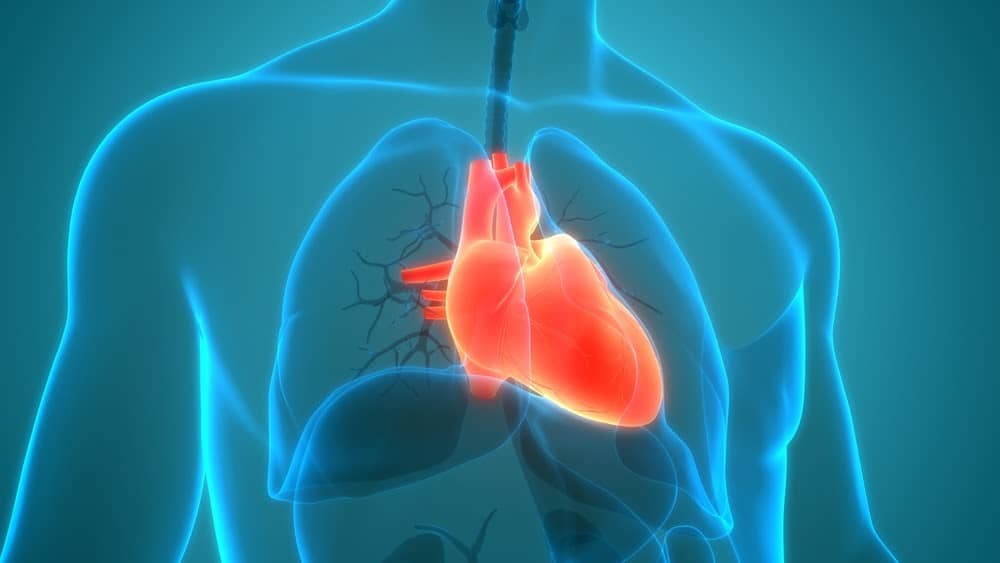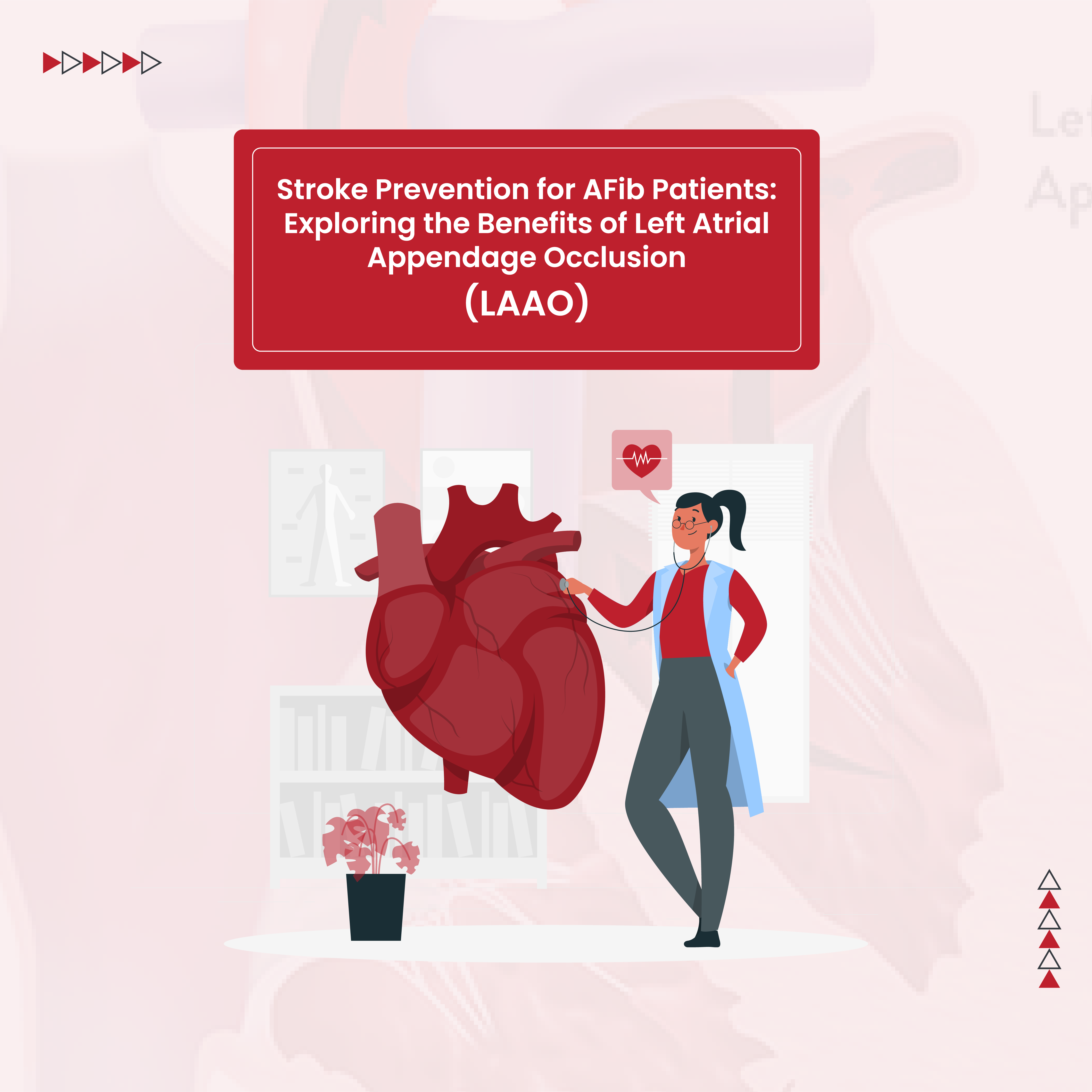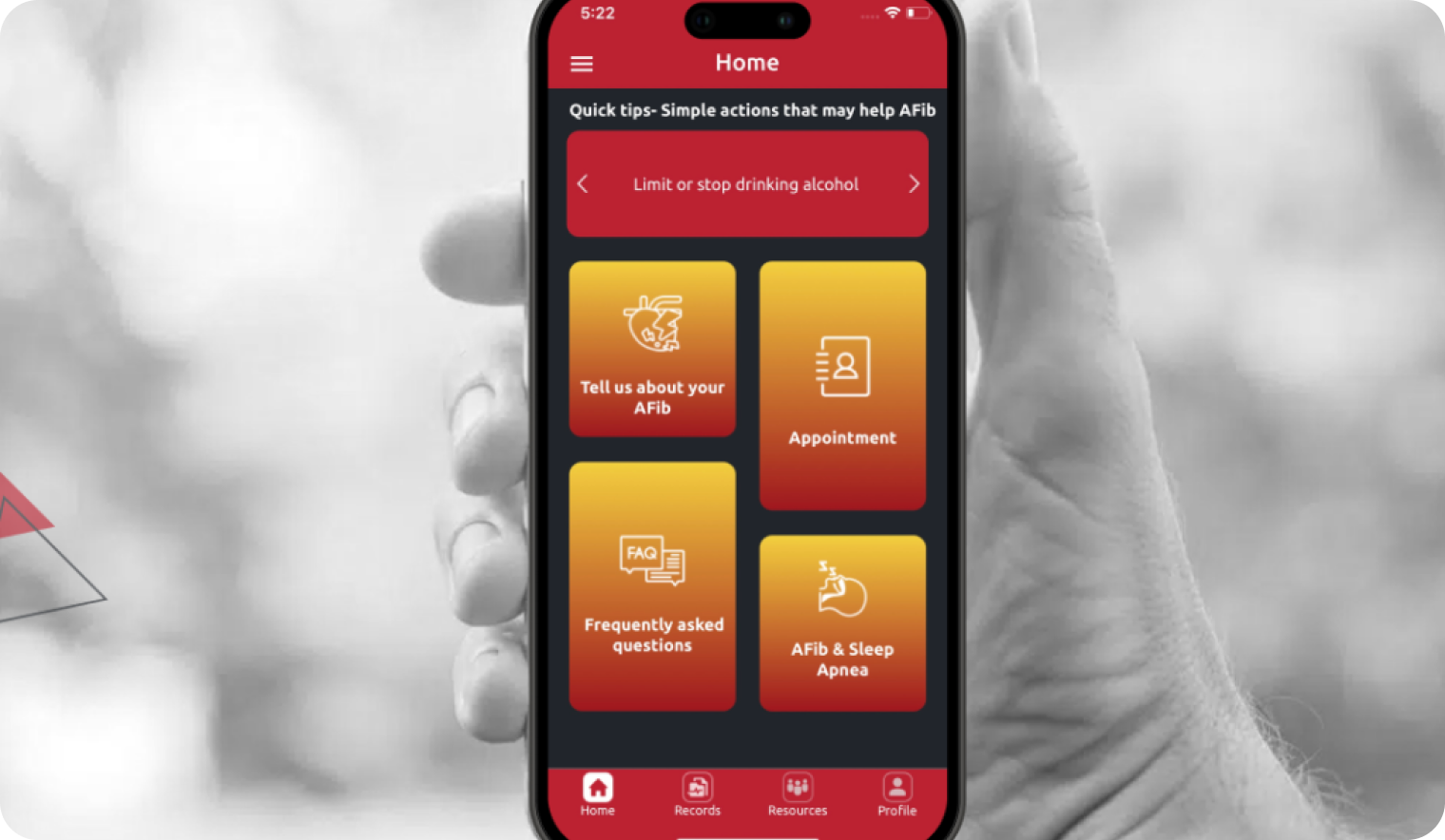There is an epidemic of atrial fibrillation (AFib) in the United States. AFib is the most common cause of sustained irregular heartbeat (arrhythmia) and it currently affects an estimated 3.3 million Americans. With our aging population and improved long-term survival with chronic health conditions, atrial fibrillation is predicted to affect 16 million Americans by 2050. AFib causes an increased risk of heart failure, stroke, hospitalization, and death. Currently, in the United States, the healthcare system spends an estimated $28 billion annually on treatment for Afib (arrhythmia).
The most common AFib symptoms include heart palpitations, fatigue, and breathlessness. An AFib episode may last for only a few minutes or it may be continuous.
What Causes Afib?
The heart has 4 chambers: 2 upper chambers (atria) and 2 lower chambers (ventricles). The heartbeat is generated by electrical signals traveling throughout the heart which cause the heart muscle to contract and pump blood from the heart to the body.
A normal heartbeat is initiated when an electrical impulse leaves the heart’s internal pacemaker (sinus node). The electrical signal travels from the sinus node in the right atrium to the AV node which acts as an electrical gatekeeper for impulses traveling from the atria to the ventricles. After an electrical impulse passes through the AV node, it travels throughout the ventricles making them contract and pump blood out to the body.
In atrial fibrillation, chaotic electrical impulses originate in the left atrium and override the sinus node. They cause the atria to quiver and ineffectively pump blood from the atria to the ventricles. The AV node is bombarded by these electrical signals which result in an irregular and abnormal heart rhythm. Atrial fibrillation frequently causes a rapid heart rate that ranges from 100 to 180 beats per minute. A normal heart rate when the heart is in normal sinus rhythm is between 60-100 beats per minute. When the heart is in AFib and beats too fast there is not enough time for the heart chambers to fill which affects how much blood can be pumped out to the rest of the body.
Structural heart disease or health conditions that damage the heart can cause atrial fibrillation. These include:
- High blood pressure (hypertension)
- Heart valve disease
- Coronary artery disease and myocardial infarction (heart attack)
- Lung disease
- Blood clots in the lungs (pulmonary embolism)
- Thyroid produces excess thyroid hormone (hyperthyroidism)
- Heart failure
- Sleep apnea
- Problems with the sinus node (sick sinus syndrome)
- Serious illness or pneumonia
- Stimulants like certain street drugs, prescription medications, over-the-counter medications, and tobacco
- Alcohol
- Heart defect that is present at birth (congenital heart disease)
- Heart surgery
Who Gets Afib?
In addition to the causes of AFib listed above, certain risk factors increase the likelihood of a person developing AFib, including:
- Age. The risk of atrial fibrillation increases with advancing age and more than 10% of people over the age of 80 years old have AFib.
- Gender. Men have a higher risk of developing AFib than women.
- Family history. Having a first-degree relative with atrial fibrillation is associated with a 40% increased risk of developing AFib.
- Obesity. AFib risk increases as a person becomes more overweight. Obesity is associated with a 49% increased risk of developing atrial fibrillation.
- Diabetes. If you have diabetes, your risk of AFib increases the longer you have diabetes and if it is not well controlled.
- Chronic kidney disease.
- Excess alcohol intake. Chronic excess alcohol intake and binge drinking can trigger AFib.
- Tobacco use. Current or former tobacco use increases the risk of AFib.
As the number of your AFib risk factors increases so does your likelihood of developing AFib.
Is AFib Something To Worry About?
Atrial fibrillation increases the risk of stroke, heart failure, hospitalization, and death. The risk of serious atrial fibrillation complications increases as the disease progresses from intermittent (paroxysmal) atrial fibrillation to persistent or chronic atrial fibrillation. For example, a person with persistent atrial fibrillation is twice as likely to develop heart failure as a person with paroxysmal AFib. A person with AFib has a 5 times increased risk of stroke compared to someone with a normal sinus rhythm. However, having persistent atrial fibrillation increases that risk by an additional 20% which results in a 6.5 times increased risk of stroke compared to the general population.
In addition to serious complications like stroke and heart failure, AFib can have a significant negative impact on quality of life. Common AFib symptoms include chest pain, palpitations, shortness of breath, exercise intolerance, elevated heart rate, lightheadedness, and fatigue. In rare cases, atrial fibrillation can cause a person to pass out.
When Should I See A Heart Specialist For AFib?
If you have received an AFib diagnosis, you should see a cardiologist, or ideally, an electrophysiologist. A cardiologist is a physician who specializes in caring for disorders affecting the heart. A subspecialty within cardiology is electrophysiology. An electrophysiologist is a heart specialist who has received additional specialized training in treating heart rhythm problems, like atrial fibrillation and atrial flutter. Electrophysiologists have the most in-depth knowledge of arrhythmia treatment which can include medications and catheter-based interventions with treatment for Afib.
At What Heart Rate Should I Go To The ER?
The normal heart rate is between 60 to 100 beats per minute. Atrial fibrillation and another similar arrhythmia, called atrial flutter, can cause a very rapid heart rate. The question of when to go to the ER if you have an elevated heart rate is dependent on a few things.
- Symptoms. If you are lightheaded, passing out, have sudden chest pain, or are having difficulty breathing you should call 911 or go to the ER.
Frequency and duration of elevated heart rate. If the elevated heart rate or symptoms come and go and only last for a few minutes at a time you are probably okay to make an appointment to see your doctor. If, however, the symptoms and rapid heart rate are severe or persistent (lasting for hours) go to the ER.
When Is Arrhythmia An Emergency?
You should seek emergency medical evaluation for AFib if you develop severe symptoms like sudden chest pain, passing out, or difficulty breathing. If you have AFib symptoms but they are not severe, you can probably wait to see if the symptoms resolve on their own. If the symptoms and rapid heart rate persist for hours, it would be best to go to the emergency room.
After an AFib diagnosis has been confirmed in the ER you may be treated with atrial fibrillation medications to slow your heart rate. Some people convert to a normal rhythm on their own as the heart rate slows down. In other cases of atrial fibrillation, cardioversion using electricity to shock the heart back to a normal rhythm is recommended.
How To Stop An AFib Episode?
Many people ask if there is anything they can do to stop an AFib episode. Atrial fibrillation can be triggered by stress (especially intense emotions like anger), dehydration, smoking, and excess alcohol intake. If you develop symptoms of elevated heart rate, palpitations, and fatigue and think you may have atrial fibrillation or atrial flutter here are some things you do at home:
- Hydrate. If you don’t have heart failure or health conditions that require fluid restriction, we recommend drinking 2 to 3 quarts/liters of water per day.
- Stress management. Meditation, yoga, tai chi, and acupuncture may all be helpful for decreasing atrial fibrillation.
- Rest and adequate sleep. Sleep is an important part of stress management. We recommend getting at least 7-8 hours of sleep per night.
- Adequate nutrition. Eating a nutritious, well-rounded diet will supply your body with the vitamins, minerals, and electrolytes it needs to promote normal heart function.
- Minimize alcohol. If you are actively in atrial fibrillation or atrial flutter, it is best to abstain from alcohol entirely. For general AFib prevention, we recommend that women have no more than one alcoholic drink per day and men have no more than 2 per day.
- Don’t smoke or use tobacco products
- Take your medications as prescribed
How Effective Is Afib Treatment?
Managing AFib often requires a multi-pronged approach to control the heart rate, maintain normal sinus rhythm, and prevent stroke. There are a number of factors that influence how effective an atrial fibrillation arrhythmia treatment is. These include:
- Type of atrial fibrillation. AFib treatments are more effective earlier in the disease course. For example, catheter ablation for paroxysmal atrial fibrillation has a significantly higher success rate than for persistent atrial fibrillation.
- Type of treatment.
- Medications. Often the first-line AFib treatment. Medications are most effective at controlling the heart rate. Medications that treat arrhythmia are less effective at helping people maintain a normal rhythm than catheter-based interventions or AFib surgery.
- Catheter ablation. Studies have shown that catheter ablation for paroxysmal AFib decreases AFib burden by 99%. Approximately 80% of patients who undergo catheter ablation for paroxysmal atrial fibrillation achieve freedom from AFib.
- Atrial fibrillation surgery. Cardiovascular surgeons perform surgical AFib ablation. This is more effective than medications or catheter ablation.
Risk factors. It is important to adequately treat AFib risk factors. The presence of untreated or inadequately treated AFib risk factors decreases the efficacy of AFib treatment and increases the likelihood of AFib recurrence.
What’s New In Afib Treatment?
There is currently no cure for AFib so clinicians and researchers are continually studying ways to improve AFib treatment. An active area of research is the continued refinement of ablation techniques and technology to improve ablation efficacy and safety.
In terms of AFib stroke prevention, left atrial appendage management is an area of intense study. The left atrial appendage (LAA) is a small pouch of tissue that protrudes off the left atrium. Over 90% of blot clots that cause AFib-related stroke are thought to originate in the LAA. Stroke risk reduction has traditionally been managed with blood thinners (anticoagulation). However, some people with AFib are unable to take long-term anticoagulation due to a history of bleeding complications or elevated bleeding risk.
The Watchman device is an FDA-approved device that can be deployed at the opening of the LAA to close off blood flow communication between the LAA and the left atrium. After a Watchman implant, a person remains on anticoagulation for 45 days. A newer device, called the Amulet, allows a person to stop anticoagulation immediately after the device implant. This could be a significant benefit if, for example, a person’s job prohibits the use of anticoagulation. The Amulet would allow them to return to work almost immediately compared to having to wait for 45 days like with the Watchman.
Can You Live With Afib Without Medication?
Atrial fibrillation management usually requires some medications. However, there are some instances where chronic medications are not necessary. Here are a few examples:
- Infrequent paroxysmal atrial fibrillation. If you are young, have rare episodes of paroxysmal AFib, and have a very low risk of AFib-related stroke you may not need to take daily medications.
- AFib free after ablation. If you have had an ablation, are AFib-free, and have a low stroke risk your cardiologist may stop your medications.
- AFib free after surgery. Surgical ablation is very effective for treating AFib and it also closes the LAA which manages stroke risk. During a surgical AFib ablation, the cardiovascular surgeon will also address the LAA, usually by placing a clip at its opening, stitching it closed, or tying it off. People can commonly stop AFib medications after surgical ablation.
Treatment of an underlying AFib trigger. Sometimes treating an AFib trigger can eliminate the AFib. For example, an overactive thyroid (hyperthyroidism) can cause atrial fibrillation. In this case, the AFib often resolves as the level of thyroid hormone returns to normal.








